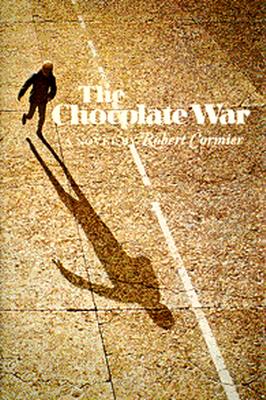I'm almost constantly getting recommendations for movies and television from various sources, be it a friend or a website. But for some reason, book recommendations are more difficult to come by, even though I have plenty of friends and family members who read voraciously. Goodreads is a nifty resource, but can only convey so much information; it doesn't really give me a sense of the books I should be keeping an eye out for. So when I do come across a recommendation that sparks my interest, I make sure to make a note of it.
One such recommendation I stumbled upon was an internet article about Robert Cormier's 1974 young-adult novel, The Chocolate War. Apparently, it's pretty well-known, and a common target for book banning in school libraries. I had never heard of it, but the article's description of its dark themes appealed to me, so I grabbed a copy from the library. Candy is usually used to convey a really carefree sense of mood, but The Chocolate War is unrelentingly brutal. The corrupt vice-principal of a Catholic boys' high school is desperate to raise money to cover his expenses, so he doubles both the quota and the price for the students' annual chocolate sale. Lurking in the shadows is a student secret society, the head of which likes to torture mild-mannered kids by assigning them humiliating or dangerous pranks to pull off. When these two entities team up to sell chocolate bars, woe unto any student who doesn't want to take part in this "voluntary" school activity.
The protagonist of The Chocolate War is Jerry Renault, an unremarkable boy who is still trying to cope with the death of his mother. When his assignment from the school gang is to refuse to sell the chocolates, he goes along with it to avoid trouble. When the assignment expires and he still refuses to play along, he doesn't stay out of trouble for long. The book takes a turn into the exploration of mob mentality in many of its forms, from grudging respect for those who won't follow the "rules" to fear of helping a friend in the crosshairs to the just-following-orders defense. I found myself rather impressed with the punches this book didn't pull about how bullying is allowed (or even encouraged) to happen, but it also definitely shows its age. It's not a book you'll want to read if you're looking for a pick-me-up; the characters in this novel confirm some of the worst assumptions you'll ever have about human nature. Still, I'm glad I read it. We could all use an occasional reminder of the things we do (or don't do) to avoid making waves.
The Chocolate War: B-
Subscribe to:
Post Comments (Atom)




0 comments:
Post a Comment